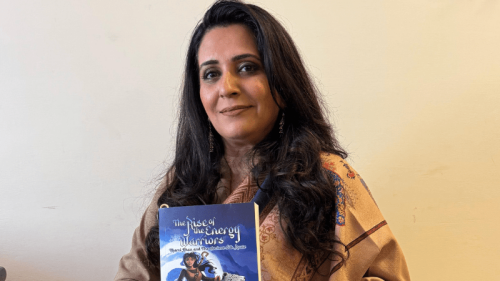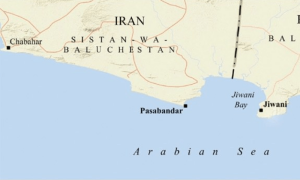
ISLAMABAD: Dr Nafis Sadik of Pakistan, a guiding force to the world in maternal and child health as well as family planning, passed away in New York on Sunday.
She had been ill for quite some time and had not been seen in diplomatic circles in New York for the past few years.
In a statement, United Nations Population Fund (UNFPA) Executive Director Dr Natalia Kanem mourned her passing and paid rich tribute to her, describing her as a proud champion of choice and a tireless advocate for women’s health, rights and empowerment.
Dr Maleeha Lodhi, a former permanent representative of Pakistan to the United Nations, also mourned her demise, terming her a passionate advocate of women’s rights.
Dr Sadik joined UNFPA in 1971, and after her retirement in 2000, she served as special adviser to the United Nations secretary-general and his special envoy for HIV/AIDS in Asia and the Pacific. Before joining the United Nations, Dr Sadik, an obstetrician-gynecologist by training, was director-general of the Pakistan Central Family Planning Council, the UNFPA statement said.
Dr Sadik was born in Jaunpur in the Indian state of Uttar Pradesh. She was the daughter of Iffat Ara and Mohammad Shoaib, who was finance minister in the Ayub Khan cabinet during the 1960s.
Nafis Sadik was educated at Kolkata’s Loreto College and received her Doctor of Medicine degree from Karachi’s Dow Medical College. She served her internship in gynaecology and obstetrics at City Hospital, in Baltimore, Maryland.
She completed further studies at the Johns Hopkins University and held the post of research fellow in physiology at Queens University, in Ontario (Canada).
Dr Sadik began her professional life as a physician, practising obstetrics and gynaecology in rural communities across Pakistan.
The Pakistan government appointed her director general of the Central Family Planning Council during the 1960s.
When she was appointed executive director of the United Nations Population Fund (UNFPA) in 1987, Dr Sadik became one of the highest-ranking women in the UN hierarchy and the first woman in the world body’s history to lead one of its major voluntarily funded programmes.
Her contribution to improving the health of women and children across the world has brought, and is continuing to bring her, many international awards and honours.
She continued her distinguished career by lending support and sharing her expertise with several boards of directors.
Dr Sadik championed the concept that women’s health and well-being were best approached from the broader angle of reproductive and sexual health, within the social and economic context of women’s lives.
She had consistently called attention to the importance of addressing the needs of women by involving them directly, as well as men.
Leadership in family planning
She was the first female recipient of the Hugh Moore Award in 1976, named after a pioneer in the US credited with calling attention to the population crisis. She was cited for her leadership in the field of family planning, as well as for her leadership in encouraging other women to find careers in the population field.
The impact made by Dr Sadik on population planning during her 14 year tenure as UNFPA’s executive director cannot be overemphasised. She led the world’s largest source of multilateral assistance to population planning programmes.
The UNFPA’s influence on population policy and family welfare is arguably stronger than that of any other agency, largely because it speaks on behalf of all nations, a UN citation stated.
Her contribution to improving the health of women and children across the globe brought her many international awards and honours.
She was a member of the Association of Pakistani Physicians in the United States. She was elected to the 1988 Fellowship ad eundem of the Royal College of Obstetricians and Gynaecologists in the United Kingdom.
Dr Sadik was Secretary General of the International Conference on Population and Development at Cairo in 1994.
According to the citation, the conference brought about enormous changes in population planning strategies.
The conference saw a change in the global consensus that put human rights, especially women’s rights, at the heart of the population debate.
Nafis Sadik made major contributions to research on population, family planning and reproductive health. She wrote numerous articles for leading journals and edited a number of important books.
Her husband, Azhar Sadik, had passed away several years ago and she is survived by five children.
Published in Dawn, August 16th, 2022










































